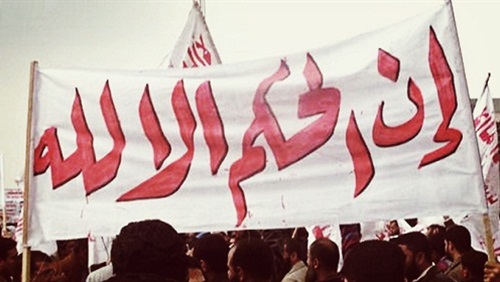
Islam is a religion. But is not just a religion, but one of the greatest religions known to humanity in history, if not qualitatively in terms of its sophistication and the development of its content, then certainly quantitatively in terms of the number of its adherents and its global spread. Religion, that is every religion throughout all ages and among all nations, is based on a fundamental principle: that there is some power higher than mankind and not part of it.
IT IS THIS SUPREME power that created the universe, human beings included, which manages the conditions of this universe and human beings in it, and it is on this supreme power that the fate of the universe and of human beings turns. Because it is this supreme power that is the creator, it necessarily knows more of its creation and its crafting than humans themselves know.
Given this infinite absolute power, there has always been a means to communicate with it, whether through those chosen by humans or by other means. It was thus, by these means, able to communicate to them its message, which reads:
Whoso judgeth not by that which Allah hath revealed: such are disbelievers.[1]
Democracy, on the other hand, is based on a fundamentally opposed rule: that citizens choose from among themselves those who will draw up ‘laws in their name and on their behalf which will regulate and govern all aspects of their lives, even religious aspects. This means that human beings govern themselves and do not leave their rule to the higher power that originally created them, and which knows them better than themselves.
This is self-evident and needs no further explaining. In which case democracy must be forbidden, not only in Islam but in every religion known to mankind, even for those living under living religions prospering in some of the oldest democracies of this age.
The question then arises about governance in Islamic countries which have chosen democracy as their system, which hold elections and adopt legislatures that initiate laws and things like that – countries such as Turkey, which yesterday was the home of the Islamic Caliphate, or some of the largest Muslim countries such as Malaysia and Indonesia. Are these countries living in a state of ḥarām?
Even the very same country in which the Revelation was manifest does not judge by what it says and instead lives a ḥarām life
They absolutely are. They are living in a state of open ḥarām. For what regulates and governs the lives of people in these countries – and they are punished if they violate them – are the laws enacted by legislators who have been elected from among themselves. This means that they are governing themselves according to their own variable and occasionally changing human ‘whims’, as the case may be, and not according to the immutable and eternal divine will, a will that is valid for every place and time, and one which has been revealed and preserved in His wise book, or through any other means that may be attributed to Him.
Moreover, the ḥarām life is not limited to the large Islamic countries that seek to keep pace with the times and adopt modern systems at various levels (even if the price is to live in the state of ḥarām), for it is equally the most backward and poorest or richest and most prosperous of Muslim countries that are falsely adopting constitutions and parliaments, and holding elections and falsely paying lip service to the finest words and speeches on democracy and the latest modern innovations. Even those that profess their hostility to all of this and a willingness to sacrifice any such benefits that might distance them from their religion – all of these countries also do not judge by that which Allah hath revealed and also live in a state of ḥarām. Even the very same country in which the Revelation was manifest does not judge by what it says and instead lives a ḥarām life, like all its Muslim brothers around the world.
It may be asked how this can possibly be, if every decree and system is issued by these ‘in the name of God’ and is free of all the grievous sins of democracy?
But the fact that whoever rules, be it the king, crown prince or whoever, is not really judging by that which Allah hath revealed. For in order for a ruler to judge by that which Allah hath revealed in these types of government system of government, he must be connected with Allah Himself, in the sense that he is to be in indirect contact with Him like the prophets and messengers or – since these messengers have spared us the burden of this task after communicating to us the message of our Lord and preserved it for us verbatim and textually in the body of the holy book which we can consult – he is to be the most worthy of all those subject to his rule in reading and understanding the provisions of the divine message preserved in the Book.

Suggested Reading
Yet have any such rulers dared to claim this honour? Clearly not. But what is it that is preventing them (as they actually claim to be doing) from seeking the help of the most noble and eminent religious scholars of their time and consulting them with respect to every decree and regulation, so that it be issued in conformity with what Allah has revealed, even if these appear to be different from what the first Muslims were familiar with, given the circumstances or each era and the developments that take place?
Nothing, of course, can prevents him from using whatever or whomsoever he wishes. For in the end he is king, and who would dare even raise an eyebrow in the face of a king, let alone deliberate on whether to accept any request he makes?
[1] Qur’ān V (al-Mā’ida), 44.
Main image: Protest banner reading إِنِ الْحُكْمُ إِلَّا لِلَّهِ ‘Judgment / rule belongs to Allah alone’ from Qur’ān XII (Yūsuf), 40: You do not serve besides Him but names which you have named, you and your fathers; Allah has not sent down any authority for them; judgment is only Allah’s; He has commanded that you shall not serve aught but Him.
